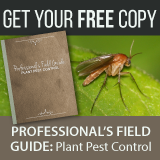

Pages: 1
| Posted: 02 Aug 2011 19:56 | |
|
Registered User Currently Offline Join Date: Aug 2011 |
Posts: 64 Reputation: 6 User Rank: 2 - Sprout 
|
| Does anyone know if there are systemic pesticide spikes (same idea as fertilizer spikes) for use in interior environments? I don't even know if such a product exists! Does it? I had the idea when I was dealing with some spider mites on a few Neanth bella. It would definitely make life easier. | |
| Posted: 02 Aug 2011 23:25 Last Edited By: Clem | |
|
Registered User Currently Offline Join Date: Jan 2011 |
Posts: 798 Reputation: 43 User Rank: 10 - Blossom 
|
|
There is:
http://www.bayeradvanced.com/insects-pests/pr ... The spikes contain Imidacloprid at a surprisingly high concentration of 2.5% (Merit granular is only 0.5% active ingredient, and Marathon granular is only 1% active ingredient, and both are commercial grade insecticides at that rate), plus 8-11-5 fertilizer, which will help with uptake of the insecticide by the plant's roots. One problem: because it is consumer packaging and does not state specifically that it is for use in interiorscapes (the label actually restricts use to residential applications only), a commercial interiorscape pesticide applicator cannot legally apply this product on an account, at least in New Jersey (your state or province may have differing regulations about the use of OTC consumer products in commercial applications). Check with the appropriate authorities in your jurisdiction before using this commercially. It's a great product, very safe because it is entirely buried in the potting medium, so no spray residues on the plants, and it is systemic with a residual activity of several months. Clem |
|
| Posted: 03 Aug 2011 00:30 | |
|
Registered User Currently Offline Join Date: Aug 2011 |
Posts: 64 Reputation: 6 User Rank: 2 - Sprout 
|
|
Thanks, Clem.
Leave it to Bayer to relieve our headaches... internally and externally :P I'll have to check to see if they're registered for use in Canada, and with the provincial government's policy on using them in a commercial environment. Thanks again! |
|
| Posted: 03 Aug 2011 03:05 | |
|
Registered User Currently Offline Join Date: Jan 2011 |
Posts: 798 Reputation: 43 User Rank: 10 - Blossom 
|
|
From what I understand from other 'scapers in Canada who have posted here in the past, Canada is very strict about what can be used where and who can use it. Many Canadian 'scapers actively advertise the fact that while they may hold licenses to use pesticides commercially, they prefer to use "cleaning methods" instead.
My view is that there are precious few "cleaning methods" that will eradicate a population of two-spotted mites, mealybugs, thrips or scale insects in an interiorscape environment. But then there's always replacements, I guess. Clem |
|
| Posted: 03 Aug 2011 15:08 | |
|
Registered User Currently Offline Join Date: Aug 2011 |
Posts: 64 Reputation: 6 User Rank: 2 - Sprout 
|
| Replacement is the route I chose for the Neanthe bella. I'm hoping the mites didn't spread to the Dracaena marginata, but I'll keep my eyes open. I know another plantscaping uses insecticidal soap, but I've found that you have to be pretty vigilant to be successful with it. I've contacted the Department of Environment with the provincial government. I should hear from them soon on what their regulations are. | |
| Posted: 03 Aug 2011 15:13 | |
|
Registered User Currently Offline Join Date: Jan 2011 |
Posts: 798 Reputation: 43 User Rank: 10 - Blossom 
|
|
Predator mites might be a good alternative for you, as I don't believe the government regulates the use of living organisms (at least here in the US) for pest control. You will need to get them onto the plants before any infestation gets out of control, though, or they will be overwhelmed and plant damage will occur despite their presence.
Clem |
|
| Posted: 03 Aug 2011 15:27 | |
|
Registered User Currently Offline Join Date: Aug 2011 |
Posts: 64 Reputation: 6 User Rank: 2 - Sprout 
|
| I'd have to look into the cost of biologicals. It may be cheaper to replace the plants, if something should come up. | |
| Posted: 03 Aug 2011 20:39 | |
|
Registered User Currently Offline Join Date: Aug 2011 |
Posts: 64 Reputation: 6 User Rank: 2 - Sprout 
|
|
And the results are in:
Fertilizer/insecticide spikes: banned in Canada. |
|
| Posted: 03 Aug 2011 23:35 Last Edited By: Clem | |
|
Registered User Currently Offline Join Date: Jan 2011 |
Posts: 798 Reputation: 43 User Rank: 10 - Blossom 
|
|
I figured as much. I think that governmental agencies that are not acquainted with interiorscaping make decisions like this based on generalizations about the product's use and potential abuse or over-use.
For example, there is concern about Imidacloprid getting into water supplies (highly unlikely in a plant in a pot in a watertight container in a building), poisoning beneficial insects like bees (there are none in any of our buildings), or being a hazard to building occupants (certainly much less of a hazard when soil-incorporated than when another product that IS allowed is sprayed onto the leaves and stems of a plant). It's precisely the soil-incorporation aspect of the product that makes it so environmentally friendly compared to "normal" pesticides that are sprayed on. These are all valid concerns for the product if used in outdoor nursery or greenhouse applications, but not really valid for interiorscape uses. But that's regulatory show-biz. Clem |
|
| Posted: 04 Aug 2011 00:17 | |
|
Registered User Currently Offline Join Date: Jan 2011 |
Posts: 102 Reputation: 5 User Rank: 3 - Plant 
|
|
Maybe they are concerned that the soil-incorporated pesticides will be used in beds that have drains and get into the water system that way?
Julie |
|
| Posted: 04 Aug 2011 01:38 | |
|
Registered User Currently Offline Join Date: Jan 2011 |
Posts: 798 Reputation: 43 User Rank: 10 - Blossom 
|
|
I guess so, but again it goes to the idea of using pesticides according to label directions. If properly applied and handled post-application, leaching of the active ingredient, which is not very persistent in the soil, would be minimal to nil.
It's also possible that soil-incorporated pesticides applied at the producer level (say, in Florida) could pose more of a threat of leaching residues into the water supply after installation in an interiorscape, because some of those products are not permitted to us as interiorscapers due to higher risks associated with their use. Clem |
|
| Posted: 12 Aug 2012 19:06 | |
|
Registered User Currently Offline Join Date: Aug 2012 |
Posts: 8 Reputation: Unranked User Rank: 1 - Seedling 
|
|
California's sevenfold increase in autism cannot be explained by changes in doctors' diagnoses and most likely is due to environmental exposures, University of California scientists reported Thursday.
The scientists who authored the new study advocate a nationwide shift in autism research to focus on potential factors in the environment that babies and fetuses are exposed to, including pesticides, viruses and chemicals in household products. |
|
| Posted: 12 Aug 2012 21:08 | |
|
Registered User Currently Offline Join Date: Jan 2011 |
Posts: 798 Reputation: 43 User Rank: 10 - Blossom 
|
|
Recent studies indicate a strong link between autism in children and the mother's continued use of alcohol and antidepressants during pregnancy. It will be very difficult to sort out blame among all the possible factors that can contribute to autism.
Clem |
|
Pages: 1
Interiorscape.com is sponsored by NewPro Containers ![]() RSS 2.0
RSS 2.0 ![]() Atom 1.0
Atom 1.0













